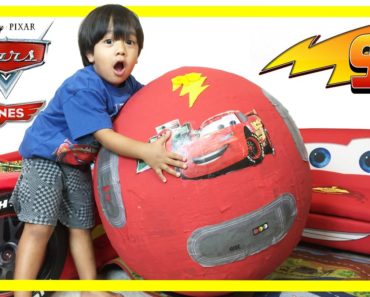Amyotrophic lateral sclerosis (ALS), also known as Lou Gehrig’s disease, is a rare, progressive motor neuron degenerative disorder that affects the upper and lower motor neurons that control muscle activity.
If the disorder’s onset is before the age of 25 or in early childhood, it is referred to as juvenile amyotrophic lateral sclerosis (JALS).
The condition has several symptoms and requires long-term management.
Read to know more about the causes, symptoms, signs, complications, diagnosis, and supportive treatments for ALS in children.
What Happens In ALS?
ALS leads to damaged motor neurons in the brain and spinal cord. The motor neurons are nerve cells that control voluntary muscle movements in the body. The brain sends nerve impulses to the spinal cord through the upper motor neurons, and the spinal cord relays the impulses to the muscles through the lower motor neurons. This neuromuscular system enables muscles to function according to the brain signals (1).
The lack of nerve impulses may gradually lead to muscle wasting. The disorder does not cause pain. However, the loss of muscular control can affect breathing, speaking, eating, and walking. These muscular problems worsen as the disease progresses. Respiratory failure due to loss of respiratory muscle functions is the primary cause of death in ALS patients.
Along with muscular functions, memory and cognitive functions are affected in some cases. However, sensory functions such as vision, hearing, touch, and smell are normal in ALS patients.
Causes Of ALS In Children
The precise cause of ALS is not entirely understood. Genetic mutations are generally considered to be the primary reasons for juvenile amyotrophic lateral sclerosis (JALS). Some mutated genes can be inherited from parents. The type of defective gene inherited can vary the type of ALS in the child. About 5–10% of ALS cases are due to inherited genes (2).
In most cases of ALS, there is no genetic history of the disease, and it may occur due to random genetic mutation. Environmental factors may play a role. The presence of other conditions, such as autoimmune disorders, protein defects, and biochemical imbalances, may also increase the risk of developing ALS.
Signs And Symptoms Of ALS In Children
The early signs of ALS are usually weakness in a hand, a leg, the tongue, or the face. The twitching of the tongue is one of the common symptoms. The muscle weakness gradually spreads to the other parts of the body as the disorder progresses. Over time, the muscles become weaker and smaller.
The following symptoms are also seen in ALS (3):
- Muscle twitching
- Difficulty in performing tasks with hands and fingers
- Trouble speaking
- Swallowing and eating problems
- Difficulty in walking
- Breathing difficulties
- Abnormal muscle reflexes
Some of the less common symptoms are memory loss, personality changes, and cognitive impairment. Swallowing and respiratory problems are serious complications, and these may often worsen over time. ALS does not cause tingling, numbness, or loss of feeling.
Complications Of ALS In Children
Children could develop complications as the disease progresses. There is usually a worsening of the existing symptoms and further loss of muscle function. The common complications of ALS may include the following (4).
- Breathing issues could arise due to paralysis of respiratory muscles. Children may require respiratory support devices (5). Lack of proper respiratory functions could also increase the risk of pneumonia.
- Speaking problems may begin with a slurred speech in many people. In advanced cases, the affected person has to use other communication methods due to the non-functioning of muscles.
- Swallowing difficulties could often result in dehydration and malnutrition in many children. There is a high risk of aspiration of food, liquids, or saliva to the lungs if the swallowing process is affected. Many people require feeding tubes due to swallowing and aspiration risk.
- Dementia (memory loss) and cognitive impairment are seen in ALS patients, which may often worsen over time.
- Loss of ability to perform self-care, loss of weight, and pressure sores are common complications in advanced cases.
Amyotrophic lateral sclerosis causes irreversible damage to the brain, and could eventually be fatal due to the development of lung failure, pneumonia, or heart failure.
There are no medications available until now to cure this condition. However, you may seek medical care since the treatment may help prevent complications, reduce the worsening of symptoms, and help your child be more comfortable.
Diagnosis Of ALS In Children
ALS diagnosis requires a lot of testing in the initial stages since the symptoms can also be seen in other conditions. Doctors may be able to suspect ALS from physical exams and symptoms if the situation is worse.
The following tests are ordered for diagnosing ALS (6).
- Electromyography (EMG) to analyze neuromuscular functions
- Nerve conduction tests may help to test nerve function
- Magnetic resonance imaging (MRI) helps visualize the damage in the brain and spinal cord
- Blood tests and a urinalysis may help rule out other possible diseases
- Lumbar puncture (spinal tap) is also useful to factor out some conditions that mimic ALS
- Muscle biopsy may also be done to evaluate any underlying muscular problems
Pediatricians may refer the child to a neurologist for ALS diagnosis and treatment. ALS is not common in children, so doctors may conduct multiple tests to exclude possible causes of similar symptoms.
Treatment Of ALS In Children
There is no cure for ALS, although research is ongoing. The treatment strategies aim to improve mobility, support, and relieve symptoms. These may include (7):
- Speech therapy
- Physical therapy
- Occupational therapy
- Supportive equipment
- Breathing devices
- Medications to reduce drooling, mood swings, etc.
- Feeding tube
Medications such as Rilutek (riluzole) and Radicava (edaravone) may slow down ALS progression or relieve symptoms for some time. However, these medications do not cure the disorder (8). These are expensive medicines, and you may discuss with your child’s doctor to know about support programs that may help to pay for or avail treatments (9).
The onset of ALS in children could be an emotional roller coaster ride for parents. You may learn about the disorder and seek support from relevant support organizations. The condition requires long-term dedicated support for the child. The doctor may help recommend the best palliative care for your child to improve their quality of life.
References:
Recommended Articles

































